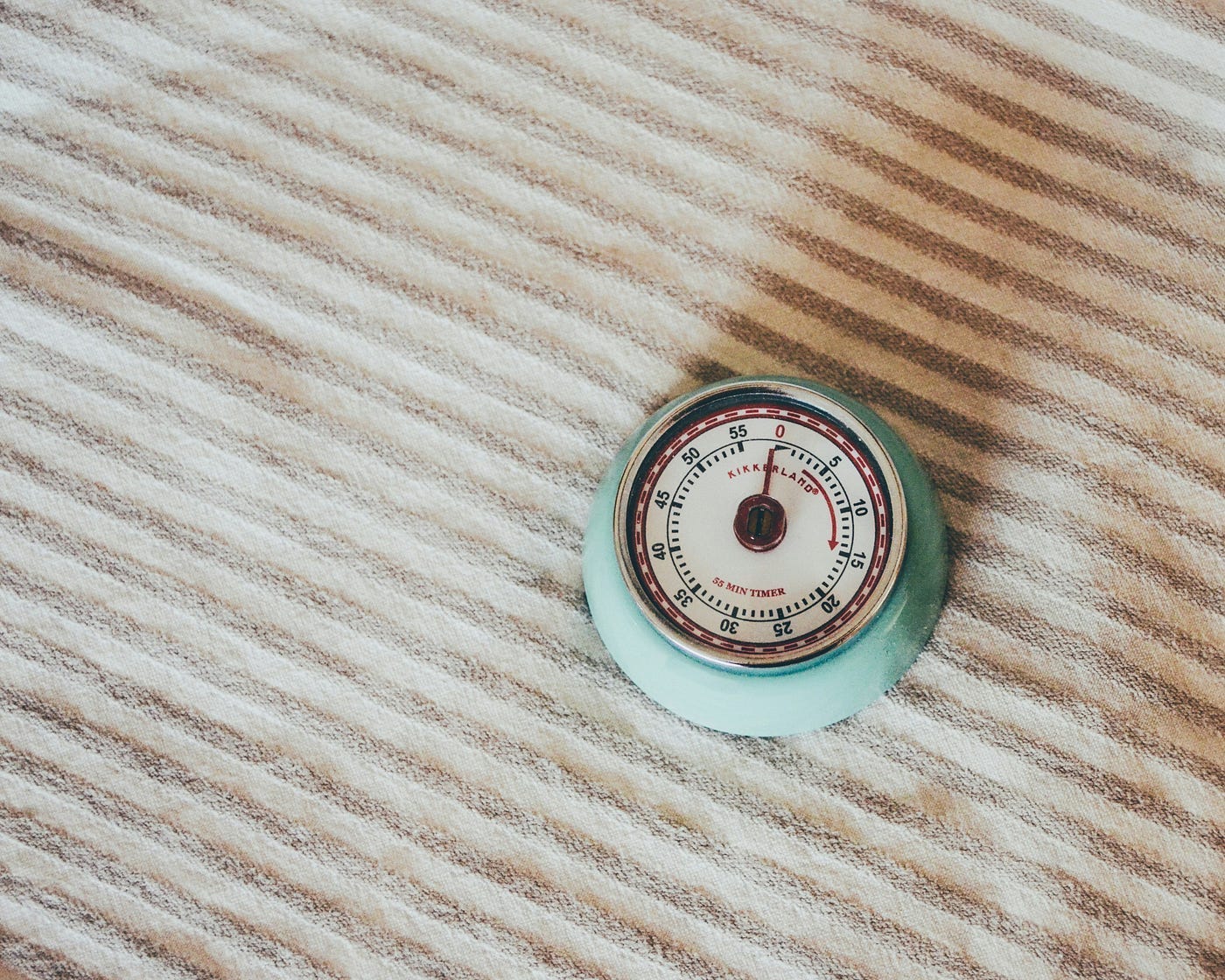How I Use Deadlines To Become a Better Writer: Tips and Techniques
Don’t buy that shit you need to wait for a creative spark to be a good writer.What you need is to use discipline and deadlines in your favour.
You may be disappointed, but there is no secret: Consistent writing is the key to becoming a better writer.
No shortcuts.
No magic tricks (do you notice the irony of how I named my “brand” Marketing Fairy?
There is no magic dust to turn the shitty writing into an excellent one, my friends.
Well, except for practising and learning.
You can learn to work smarter, not harder.
I’ve been living from writing for the last 23 years. And I’m an ordinary girl, as you don’t need to be extraordinary to be good. Or good enough.
Don’t buy that shit you need to wait for a creative spark to be a good writer. What you need is to use discipline and deadlines in your favour.
Before entering the marketing world, I was a journalist in a daily newspaper—a workplace where you have no excuse not to write.
Because newspaper can’t go with the blank pages or say
“Sorry, our writers had a creative block”.
So, I learned from the early days to operate on deadlines. Give me the deadline and don’t worry.
Even when I started working with marketing clients many years later, the only question after the brief was: “What’s the deadline?”
I trained my creative muscles to work when I needed them.
In the last 23 years, three things helped me the most to write consistently and write at a high level:
Discipline
The habit of writing.
Deadlines.
“A writer who waits for ideal conditions under which to work will die without putting a word on paper.
E.B. White
How to Make Writing Habit?
There is no secret.
No one becomes an excellent writer out of the blue.
Writing is a skill that requires long practice. Talent is just a tiny percentage of the package.
So, how to build that writing habit?
Set aside a specific time each day for writing.
For years, it was a deep night when my kids were asleep. Now, my time is early morning.
Create a designated writing space.
It doesn’t always have to be the same space. But I found the same space can get you in the writing more quickly.
Use a timer to help you stay focused and on-task
Pomodoro, Time blocking, get into the flow, you name it. But you need to be focused and devoted.
p.s. I have a FREE time planning daily timebox template for you. Access to it here.
Reward yourself for meeting your writing goals.
Pavlov’s reflex at its best. As James Clear, one of my favourite self-improvement authors, says, the base of every habit is clue and reward.
By making writing a habit, you’ll find it easier and more natural over time.
Stick with it, and you’ll be amazed at how much progress you can make as a writer.
How to Use Deadlines to Boost Your Productivity in Writing?
Setting deadlines and doing disciplined timeboxing can help you break free from Parkinson’s Law:
That bastard is often guilty of why we procrastinate.
Because we give ourselves the most expensive gift — time.
“Every task expands to fill the time available for its completion.”
Defining a specific time for a task and sticking to it will keep you accountable and kill procrastination.
Boost Your Productivity With a 5–Step Approach to Deadlines
To use deadlines to boost your productivity in writing, you can follow these steps:
Set realistic deadlines for each writing task and prioritize them based on importance. Don’t fall into planning fallacy!
Break down larger writing projects into smaller milestones with their deadlines.
Use a timer or stopwatch to track your progress and ensure that you stay on track. I use www.pomofocus.io.
PRO tip: Use Pomodoro Technique to stay focused and write more in the set time.
Avoid distractions and focus on the task during your scheduled writing time.
Reward yourself for meeting your writing deadlines, such as taking a break or indulging in a treat.
Remember: only by being your inner boss and setting up your own rules you can achieve your writing goals and boost your productivity.
Photo by Debby Hudson on Unsplash
BONUS: Set Deadlines For Content Creation.
Don’t randomly create content for your Substack, newsletter, blog, or social media. Save time by setting deadlines for content creation, which is essential.
To keep your schedule
Make yourself accountable
Save hours and hours
Don’t wait for inspiration.
Creating a content calendar is the best way to keep on top of your schedule. You can use many online tools or CRMs to track your deadlines for projects, articles, and writings.
What I Recommend You to Use:
For social media planning and calendars
Clickup: I use it to track all my projects and tasks.
The todoist is responsible for keeping all tasks and deadlines on the calendar.
Notion: you can customise and build all your marketing hubs in Notion.
I created a Content Calendar and Planner in Notion; you can copy and use it for free.
Also, if you’re a beginner, start with this free, simple, time-blocking printable template to get into the habit of blocking chunks of focused time.
I’m also preparing a full Content Writing Marketing Hub, and guess what? You, my friend, can register to be the first to know when I launch it.
Use Deadlines to Prioritise Your Tasks.
If you’re juggling multiple marketing projects simultaneously, using deadlines to prioritise your tasks can be helpful.
For example, set a deadline to complete the newsletter, followed by other tasks like social media posts or blog content.
Use Reminders to Stay on Track.
Use calendar reminders, CRM, or project management tools to stay on track and meet deadlines.
Set reminders for critical deadlines, and ensure you allow enough time to complete each task before the deadline arrives.
The most difficult step is to change your mindset.
Once you start, everything will become easier. Start today.
If you need help on that road, read my articles. I poured all my knowledge and experience into it, and don’t be afraid to reach me :)
Hi, I am Angelina. My magic power is combining content marketing and productivity to help you create more “wallet-opening” content in less time.






Angelina you are so right with your advice here. Nothing forces me to focus like a deadline! And your advice about just writing and you will improve is true as well. It’s something I have picked up from being on Substack. Previously, if I didn’t have an idea for a new article I would avoid it until the deadline was here and now I am forced to write something. Now I am learning to just start writing anyway, and flesh my ideas out as I write. Appreciate your tips here!
Fellow ClickUp lover here (I'm a Verified Consultant). and I LOVE the Editorial Calendar for my Substack publication I built using the platform.